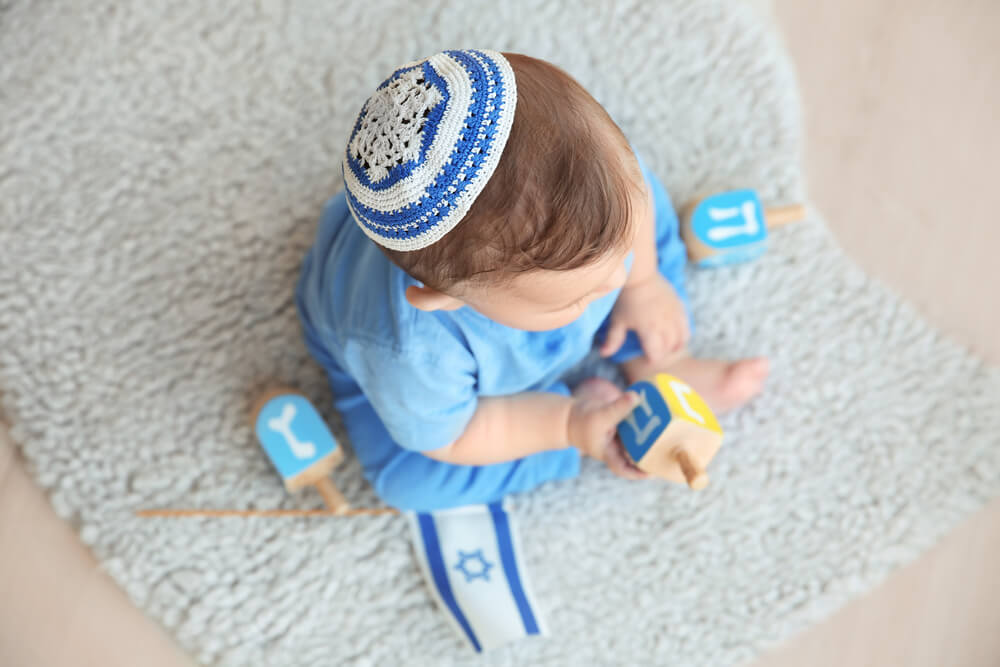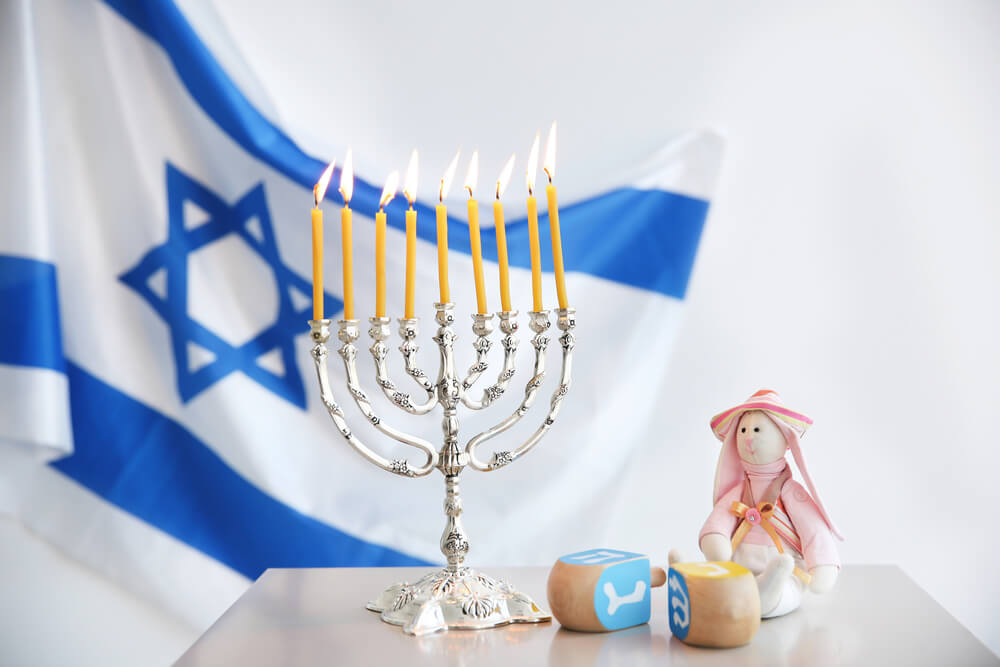The Jewish faith is deep-rooted in belief, tradition, and culture that continues strong through the new generations of today. One of the greatest moments in the young, Jewish parents’ lives is naming their children. Not only the name that they choose but the ceremony and tradition that it is all built upon. There are a few different aspects related to the naming of a child and we’ll discuss the differences below.
Jewish Baby Naming Traditions
Choosing a Hebrew name is a very important part of the identity of the child and will be connected with them through the rest of their life, and be used at various religious passage events. When it comes to naming the child, the traditions will differ depending on the ancestry of the family, Torah, or threat of assimilation. Sometimes the Hebrew name can match their English name wholly, partially, or not at all; it all depends on what the parents decide to choose. The child’s formal Hebrew name follows the structure: child’s name, “ben or bar” for a boy or “bat” for a girl, then the father’s Hebrew name. One exception to the formal structure of a child’s name comes up when the father is non-Jewish. In this case, the mother’s or maternal grandfather’s name will be used.
For example, Ashkenazic Jews (European ancestry) will select a name that honors the memory of a deceased relative by choosing a name that starts with the same letter as the honored family member. This is done to keep the memory alive and to inspire the namesake child to live their life, representing the strong qualities of who they are named after. Sephardic Jews (Spanish or Middle Eastern ancestry) will follow the strong tradition of naming their children after living relatives they wish to honor. Family memory is extremely important in the Jewish family tradition.
Sometimes parents can choose their child’s Hebrew name from the Torah reading that corresponds to the birth of their child. A baby Jewish girl’s naming ceremony typically takes place during the first Torah reading after her birth, but this will be discussed later in a bit more detail. Another factor that has kept this naming tradition alive is that there was a fear of cultural assimilation and some of their religion and cultural belief would be lost by being part of new cultures. However, many of the most popular names in the United States have Hebrew roots.
The Baby Naming Ceremony

Because this moment in a Jewish baby’s life is of extreme importance, the Hebrew baby naming ceremony is not taken too lightly. For baby boys, their naming ceremony is to take place during their brit milah or bris, which is performed on the eighth day after being born. The brit milah is the ceremony in which the baby enters a covenant of flesh with God by being circumcised. The reason these two ceremonies take place on the eighth day after birth is because the baby boy will have experienced one Shabbat. Because baby girls are not circumcised, they do not have a special ceremony combining these two, but instead, their naming ceremony can happen anytime. It is customary to have it during the first few weeks and during the Torah reading.
While these ceremonies can take place at a variety of places, most often, they are held at the synagogue because of the strong ties to the faith. They can also be held in the family’s home, but either way, the bris celebration will also include gifts and a meal. It is customary to have Jewish baby naming ceremony gifts brought if you have not given the parents a gift in advance. Religious-themed gifts are usually the route that guests like to go since the ceremony is religious.
Some examples include:
- Star of David for a nursery or home
- Kiddush cup for children
- First Bible
- Noah’s Ark related gifts
- Baby gear (not religious)
- Personalized gift with the Hebrew name of the baby
- Money
The Jewish baby naming ceremony is an incredibly joyous occasion and should be a time of great celebration. If you are having a baby boy and are looking for a board-certified, religious mohel, Dr. Andrew Krinsky has established himself in the Tamarac community as one of the best mohels. To ensure that your newborn baby is safe, healthy and happy, make sure to check out Dr. Andrew Krinsky for performing your son’s brit milah.



